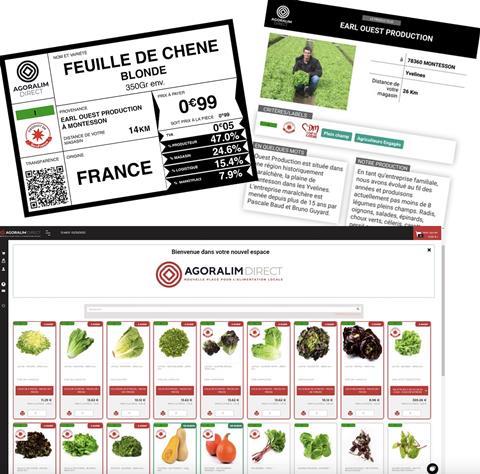The launch of Agoralimdirect.fr will be a game-changer for professionals looking for fresh, locally grown produce, says Rungis president
The launch of Agoralimdirect.fr, the new virtual marketplace for fresh produce in the Île-de-France region, lays the foundations for tomorrow’s food distribution, according to Stéphane Layani, president of Paris’s Rungis International Market, initiator of the Agoralim project.

The marketplace will offer more than 4,000 products grown within a 200km radius around the Agoralim territory, with 200 farms already partnered up.
“The launch of the www.agoralimdirect.fr site marks a turning point for food distribution and catering professionals looking for fresh, locally grown products,” a statement from Rungis read.
AgoralimDirect.fr apparently aims to simplify and streamline daily dealings between producers and buyers thanks to dedicated logistics, secure payments and simplified billing.
In Île-de-France, agricultural land accounts for nearly half the land, but access to such products is frequently complicated by inefficient logistics flows for fresh products, Rungis stated.
The new virtual marketplace, it said, was perfectly adapted to the food challenges of today’s society. “The objective of the platform is threefold,” it explained, “to facilitate access to local, quality products thanks to an intuitive digital tool; to support local agriculture; and to show total transparency on prices.”
Layani commented: “With the launch of Agoralimdirect.fr, we are laying the foundations for tomorrow’s food sector. Thanks to this new platform, we can offer professionals fresh, seasonal products with total transparency across the entire value chain.”
Agoralimdirect.fr is operated by the teams of DirectMarket.fr, a foodtech startup specialised in sourcing and supplying fresh and local products.
“Thanks to their expertise, the Direct Market teams have designed a tailor-made platform which presents numerous advantages for all actors, from the farm to the final consumer,” Rungis stated. “Farmers are relieved of the time-consuming activities of commercial relationships (administration, invoicing, canvassing, logistics), while buyers benefit from the development of a traceable and certified local food offering.”
And through QR codes on the label, consumers can access all the information about the product and the producer within seconds.



